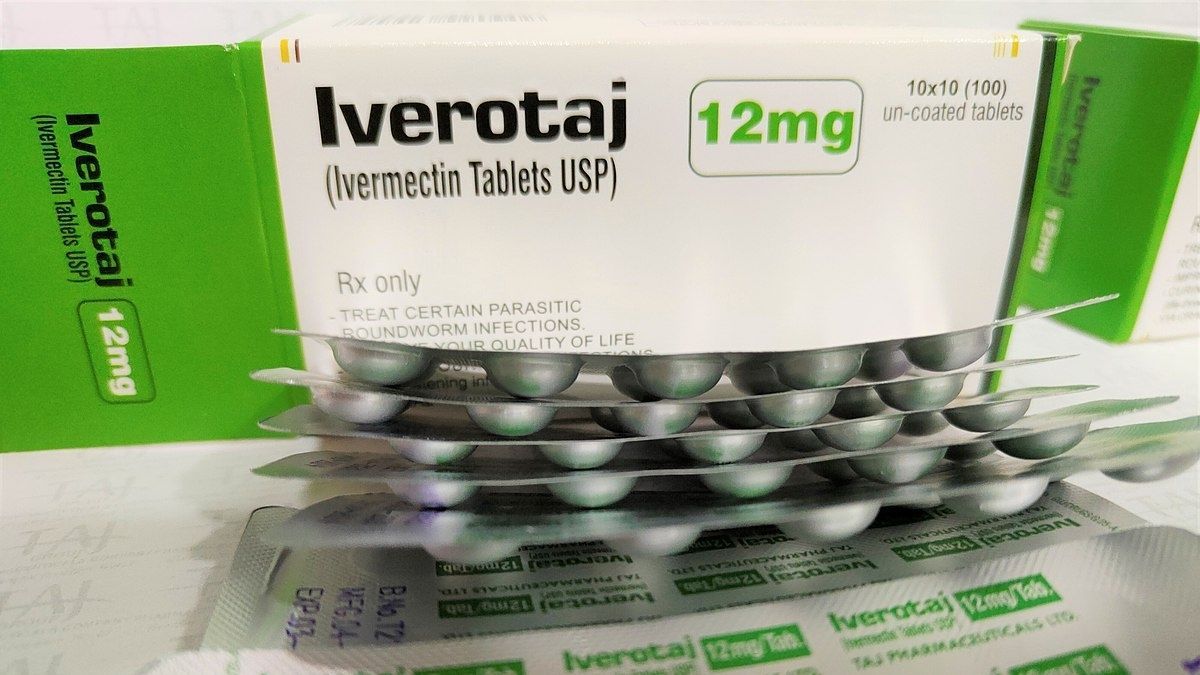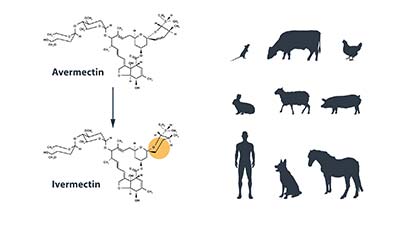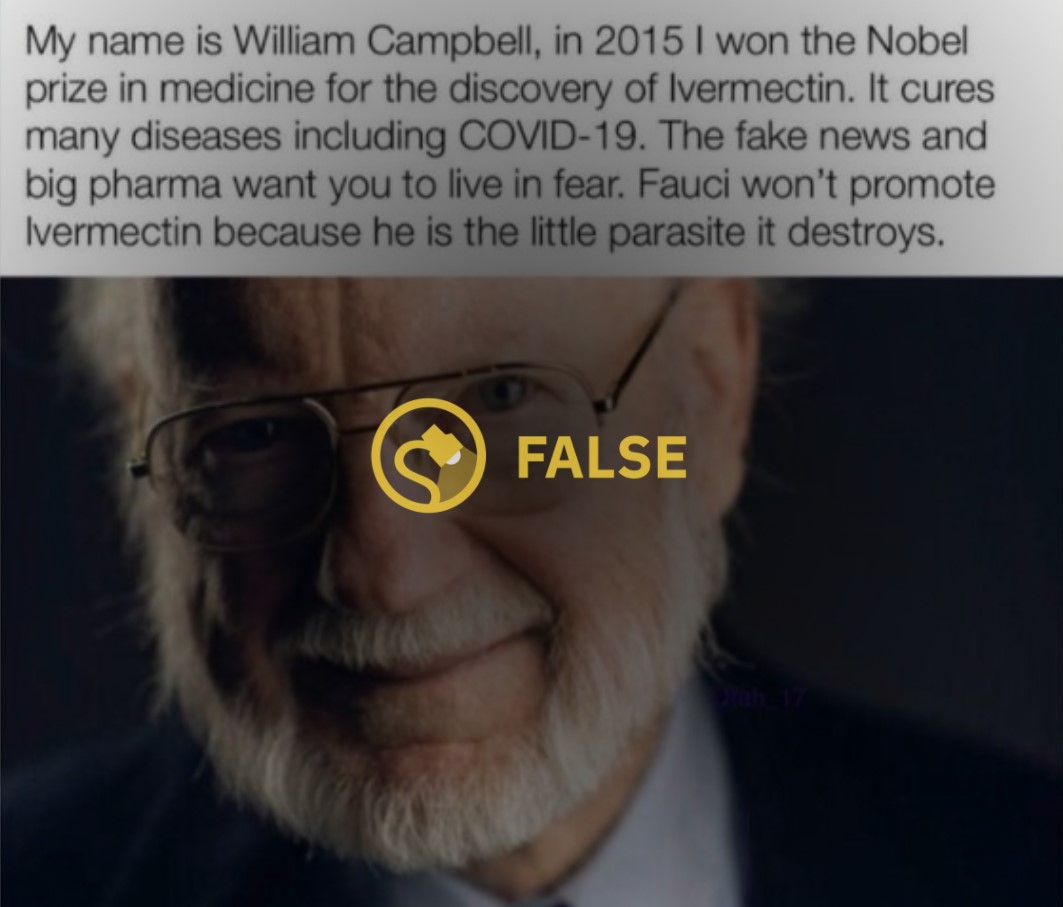Ivermectin was developed to fight infections caused by parasitic worms. COVID-19 is not caused by parasitic worms. Winning the Nobel Prize does not impact a drug's ability to treat COVID-19.
In September 2021, as people continued to seek out alternative treatments to COVID-19 despite there being free, safe, effective and readily available vaccines against the disease, many turned to ivermectin, a drug that is frequently used to de-worm horses and fight parasitic roundworm infections in humans. This led to livestock stores turning away customers, an increase of calls to poison control centers, and a warning from the U.S. Food and Drug Administration (FDA) for people not to self-medicate, as they could use the incorrect dosage or the entirely incorrect medicine.
Did Developers of Ivermectin Win Nobel Prize?
Some social media users pushed back on the claim that ivermectin was a "horse de-worming" drug, and claimed that ivermectin had won the Nobel Prize in 2015 after it was found to be effective in humans.
This is largely accurate. William C. Campbell and Satoshi Ōmura were truly awarded a Nobel Prize in Physiology or Medicine in 2015 for the development of a "novel therapy against infections caused by roundworm parasites" called ivermectin. It's not entirely accurate to say that they were awarded the Nobel for ivermectin's "outstanding results in treating HUMANS," however, as the drug was proven to be extremely effective in both animals and humans.
A news release announcing the award reads:
William C. Campbell discovered that one of Ōmura’s Streptomyces cultures was very effective in killing off parasites and the active compound, Avermectin, was purified. Avermectin was further modified to Ivermectin, which turned out to be highly effective in both animals and humans against a variety of parasites, including those that cause River Blindness and Lymphatic Filariasis.
[...]
The discoveries of Avermectin and Artemisinin have fundamentally changed the treatment of parasitic diseases. Today the Avermectin-derivative Ivermectin is used in all parts of the world that are plagued by parasitic diseases. Ivermectin is highly effective against a range of parasites, has limited side effects and is freely available across the globe. The importance of Ivermectin for improving the health and wellbeing of millions of individuals with River Blindness and Lymphatic Filariasis, primarily in the poorest regions of the world, is immeasurable. Treatment is so successful that these diseases are on the verge of eradication, which would be a major feat in the medical history of humankind.
More importantly, the developers of ivermectin were awarded a Nobel Prize for its effective treatment for parasitic worms. But COVID-19 is not caused by a parasitic worm.
Did Nobel Winner Say Ivermectin Cured COVID-19?
No. As rumors circulated about Ivermectin, so did a fake quote that was ostensibly uttered by one of its developers.
This is not a genuine quote from Campbell. While Campbell did win a Nobel prize for developing an effective treatment for parasitic worms, he has not said that Ivermectin "cures" COVID-19.
What's the Difference Between Horse Ivermectin and Human Ivermectin?
In addition to the fact that ivermectin was developed to treat parasitic worms and has not been approved as a treatment for COVID-19, the real danger of this drug comes when people try to self-medicate. A doctor may prescribe ivermectin for humans, but the drug is harder to come by without a prescription. This has led to people buying over-the-counter versions that are meant for animals and taking the incorrect dosage.
The FDA explains that the horse version of ivermectin is much more concentrated because horses and other livestock tend to weigh much more than the average human. This means that if people take horse medication, they run the risk of overdosing and suffering "nausea, vomiting, diarrhea, hypotension (low blood pressure), allergic reactions (itching and hives), dizziness, ataxia (problems with balance), seizures, coma and even death."
Ivermectin Products for Animals Are Different from Ivermectin Products for People
For one thing, animal drugs are often highly concentrated because they are used for large animals like horses and cows, which weigh a lot more than we do—a ton or more. Such high doses can be highly toxic in humans. Moreover, the FDA reviews drugs not just for safety and effectiveness of the active ingredients, but also for the inactive ingredients. Many inactive ingredients found in products for animals aren’t evaluated for use in people. Or they are included in much greater quantity than those used in people. In some cases, we don’t know how those inactive ingredients will affect how ivermectin is absorbed in the human body.
Is Ivermectin Effective Against COVID-19?
This drug has not been proven to be effective against COVID-19, and it has not been approved for use as a treatment or preventative measure against the disease in the United States.
The FDA writes:
Q: Should I take ivermectin to prevent or treat COVID-19?
A: No. While there are approved uses for ivermectin in people and animals, it is not approved for the prevention or treatment of COVID-19. You should not take any medicine to treat or prevent COVID-19 unless it has been prescribed to you by your health care provider and acquired from a legitimate source.
A few clinical trials have started to test the drug against COVID-19, but so far those studies are inconclusive.
Currently available data do not show ivermectin is effective against COVID-19. Clinical trials assessing ivermectin tablets for the prevention or treatment of COVID-19 in people are ongoing.
[...]
The FDA has not authorized or approved ivermectin for the treatment or prevention of COVID-19 in people or animals. Ivermectin has not been shown to be safe or effective for these indications.



